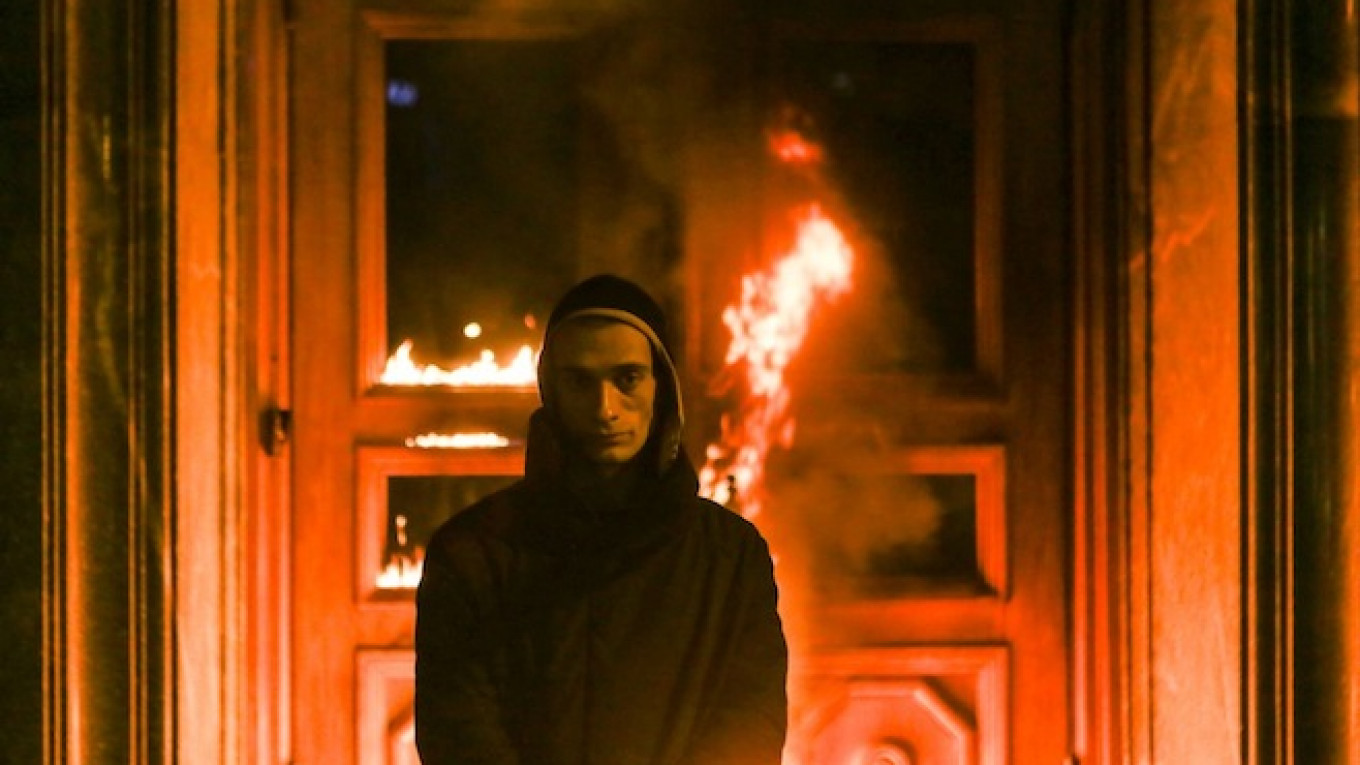The trial of notorious Russian performance artist Pyotr Pavlensky began today in a Moscow court. He remains in detention as two criminal cases against him continue.
He is accused of damaging historical heritage by setting the door of the Moscow headquarters of the Federal Security Service (FSB) on fire in November 2015, a protest he called “A Threat.”
Initially, he was charged for this stunt on the grounds of “vandalism motivated by ideological hatred,” but this was later changed.
Pavlensky is also facing vandalism charges for setting car tires on fire on a St. Petersburg bridge in February 2014, a protest action in support of Ukraine's Euromaidan revolution which he named “Svoboda” (“Freedom”).
The court hearings were initially held in St. Petersburg but were moved to Moscow following the artist's detention.
Pavlensky demands that his performances be classed as an act of terrorism. “I demand to be suspected of terrorism. I think it follows the logic of your system. Unless the demands are met, I refuse to fulfill your rituals,” he said.
His demands were ignored, so the artist has vowed to sit through the court hearings in silence without answering questions from the judges.
During the trial, one prosecutor explained that the FSB building has historical and cultural value as cultural figures were held there in the 1930s. One witness — an FSB employee — told the court he heard Pavlensky during the protest shouting “the FSB is holding the whole of Russia in fear.”
As his defense witnesses, Pavlensky invited three sex workers to court, whom he paid.
“Whether you like it or not, there is no difference between prostitutes, judges, prosecutors, teachers, directors or bureaucrats,” he explained.
Pavlensky was held in Moscow's Butyrka prison before being moved to the “Medved” detention centre. The day before the trial, it became known that the artist was beaten in the Moscow City Court. “I have broken a knee, fractured a rib and internal bruising,” he wrote in a note from his detention cell.
Pavlensky refused to stand up in court. His verdict is expected on May 19.
A Message from The Moscow Times:
Dear readers,
We are facing unprecedented challenges. Russia's Prosecutor General's Office has designated The Moscow Times as an "undesirable" organization, criminalizing our work and putting our staff at risk of prosecution. This follows our earlier unjust labeling as a "foreign agent."
These actions are direct attempts to silence independent journalism in Russia. The authorities claim our work "discredits the decisions of the Russian leadership." We see things differently: we strive to provide accurate, unbiased reporting on Russia.
We, the journalists of The Moscow Times, refuse to be silenced. But to continue our work, we need your help.
Your support, no matter how small, makes a world of difference. If you can, please support us monthly starting from just $2. It's quick to set up, and every contribution makes a significant impact.
By supporting The Moscow Times, you're defending open, independent journalism in the face of repression. Thank you for standing with us.
Remind me later.






